DT Swiss XM 1501 Spline One 29 Wheels - Review
DT Swiss' range of Spline One wheels encompasses thirteen different models that cover everything from cross-country to enduro racing, but all of them have one thing in common: increased rim width compared to the Swiss brand's previous offerings. Internal widths range from 22.5mm for the cross-country hoops, to a massive 40mm internal width for plus-sized rubber. The $1,261 USD XM 1501 Spline One 29 all-mountain wheels tested below sport a 30mm internal rim width, a number that should play nice with high-volume trail tires that have been proving to be so advantageous in so many settings.
XM 1501 Spline One Details
• Intended use: all-mountain / enduro
• Wheel size: 29''
• Rim width: 30mm (inner)
• Rim material: aluminum
• Spokes: 32, 3x
• Center Lock disc mount (adapters incl.)
• Incl. SRAM and Shimano freehubs
• Weight: 1,752-grams
• MSRP: $1,261 USD
• www.dtswiss.com
• Intended use: all-mountain / enduro
• Wheel size: 29''
• Rim width: 30mm (inner)
• Rim material: aluminum
• Spokes: 32, 3x
• Center Lock disc mount (adapters incl.)
• Incl. SRAM and Shimano freehubs
• Weight: 1,752-grams
• MSRP: $1,261 USD
• www.dtswiss.com
The XM 1501 Spline One 29 wheels are assembled with straight-pull spokes around DT Swiss' own hubs, as you'd expect, although it is a bit of a surprise that there's no six-bolt rotor mount option to choose from—it's Center Lock or nothing, with six-bolt adapters being included. The front wheel weighs 818-grams and the rear 934-grams on my scale, both sans Center Lock adapters, making for a 1,752-gram wheel set. That's not too shabby of a number given that there's no carbon fiber to be found here, the relatively wide rim design, and their enduro-ish intentions.
Design
As high-volume tires have grown in popularity due to the extra traction, speed, and forgiveness that they can provide, rim width has had to also grow accordingly. DT Swiss had been somewhat conservative about this in years past, but the debut of their Spline One range a few years ago changed that, with internal rim widths ranging from 22.5mm for their cross-country wheelset to a massive 40mm internal width for the largest option. The XM 1501 Spline One wheels that I've been spending my time on sport a 30mm internal width, which is wide enough to work well with both plus-sized rubber or just wide, standard tires.
The rim bed isn't sealed, but it does ship with rim tape installed, and DT Swiss say that they use a bead blasting method and "a very gentle anodizing process" that is claimed to up surface durability. In other words, fewer scratches, dings, and dents. The shape of the rim bed is also said to make going tubeless easier, as is the design of rim's sidewalls.
DT Swiss' Squorx Pro Head splined nipples are used, and a specifically shaped washer is placed between the inner rim bed and head of each nipple that's said to act as a sort of ball-joint while also distributing the forces through a larger area. Also, I just like to say ''Squorx" a lot. Squorx.
The hubs at the center of XM 1501 Spline One's are, of course, from DT Swiss, and the company says that the straight-pull shells are the lightest that they've ever machined. And as with most of DT Swiss' hubs, they can be had in Boost and non-Boost spacing; the end-caps are pushed on or removed by hand thanks to an interference fit using O-rings, a system that means no tools are required to swap between Shimano and SRAM freehub bodies or to give the guts some love. Internally, you'll find a 36-point engagement Star Ratchet clutch inside the rear hub that provides 10-degrees of engagement.
With only four moving parts—the two Star Wheels and two springs—the Star Ratchet system is about as simple as it gets.
Performance
The XM 1501 Spline One wheels have been designed for a spot of rowdy riding and that's exactly what they saw, but first I needed to mount up some rubber. I used three different types of tires while I had the XMs on my bike: a set of 2.2'' wide Vittoria Gato tires that weren't really wide enough but that I wanted to try on the DT wheels out of curiosity (they still worked well due to their round cross-section); a set of burly Vittoria Mota tires that are most definitely well suited to the XM 1501 Spline Ones; and a set of equally stout Continental Der Baron 2.4'' Projekt tires.
All three sets went on and seated up without any drama, so there's probably something to DT Swiss' claims that the rim bed shape helps to make this often messy job a rather easy one to get through. The 30mm internal rim width and the support that it provides allows for some seriously low tire pressures, especially if the terrain kept my speed down; as low as 17psi for the Der Barons, and 20psi for the much lighter duty Gatos. Going a few psi below those numbers didn't result in burps and spraying sealant, which is a good sign, but rather just the vague feeling of a tire's casing folding over. Zero burps.
One thing I was expecting was a dent or two by now given the relatively low pressures, especially on the rear rim, but there isn't even a hint of any direct contact with the ground. This, despite me knowing for a fact that I bottomed the rear tire and rim on the ground a handful of times. I did throw the rear wheel on the truing stand once, after about three weeks of use, just to touch up roughly 2mm of run out; tension for both the front and rear has held well.
DT Swiss' hubs are trouble-free, but the Center Lock rotor mounts aren't ideal. I'd prefer standard six-bolt rotor mounting.
I ran the XM 1501 Spline One wheels back-to-back with a set of Stan's Arch MK3 rims laced up with 32 spokes. There's a very obvious difference between the Spline One wheels and the Arch MK3s on the trail, with the former feeling more precise, stiffer all around, and allowing for slightly lower tire pressures due to the 4mm of added rim width. Both wheelsets are made for the same kind of riding, but I'd pick the XM 1501 Spline One wheels every time given the chance.
I've always been a big fan of DT Swiss' hubs, largely because of how easy it is to swap freehub bodies or clean and grease the Star Ratchet system, and it's no different with these newer straight-pull flange hubs. Everything comes apart with a firm pull, and it all simply pushed back together by hand as well. The stock configuration is the 36-point engagement Star Ratchet clutch that was flawless for me, and I'd prefer that over the much finer 54-point engagement Star Ratchet that I've seen strip out more than just a few times, especially when used with all of these new, massive bailout cogs that are so popular. The hub bearings aren't spinning quite as smoothly after a few months of use as they were out of the box, but I wouldn't jump in there for maintenance any time soon—they're far from needing any attention. One thing that I'm not a fan of is the Center Lock rotor mounts that allow the adapters to rock ever so slightly in the splines—this is annoying.
As trouble-free as the Spline One wheels were for me, I do find myself looking at their $1,261 USD price with a raised eyebrow. The performance is there, no doubt about that, and their 1,752-gram weight is impressive when you factor in the 30mm internal width, even against many carbon fiber wheel sets. There are, however, other aluminum wheels out there that cost much less and weigh marginally more. Your money, your call.
Pinkbike's Take:
Author Info:
Must Read This Week
Sign Up for the Pinkbike Newsletter - All the Biggest, Most Interesting Stories in your Inbox
PB Newsletter Signup
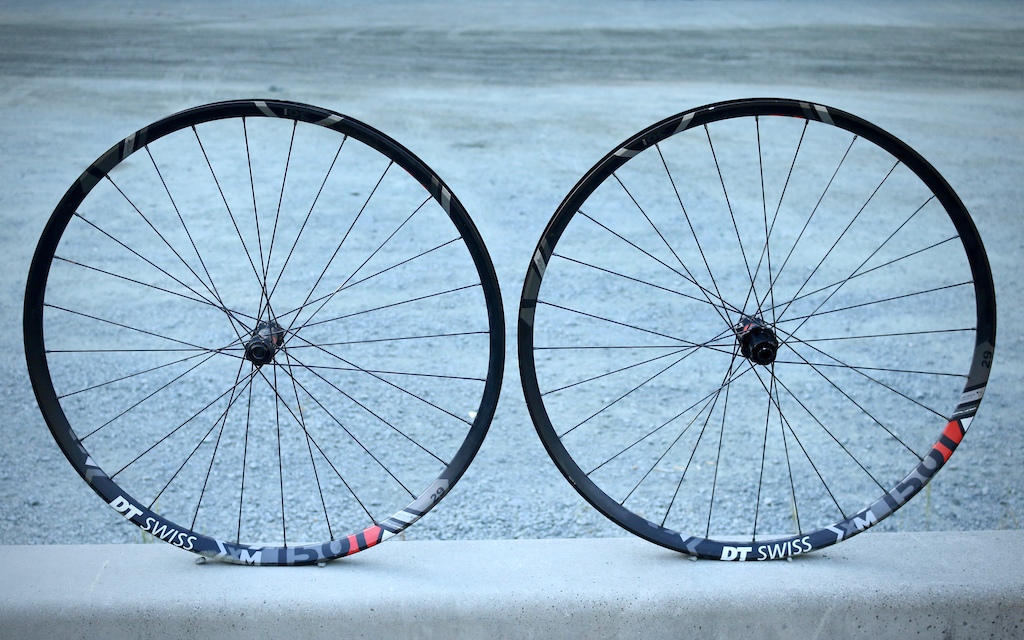
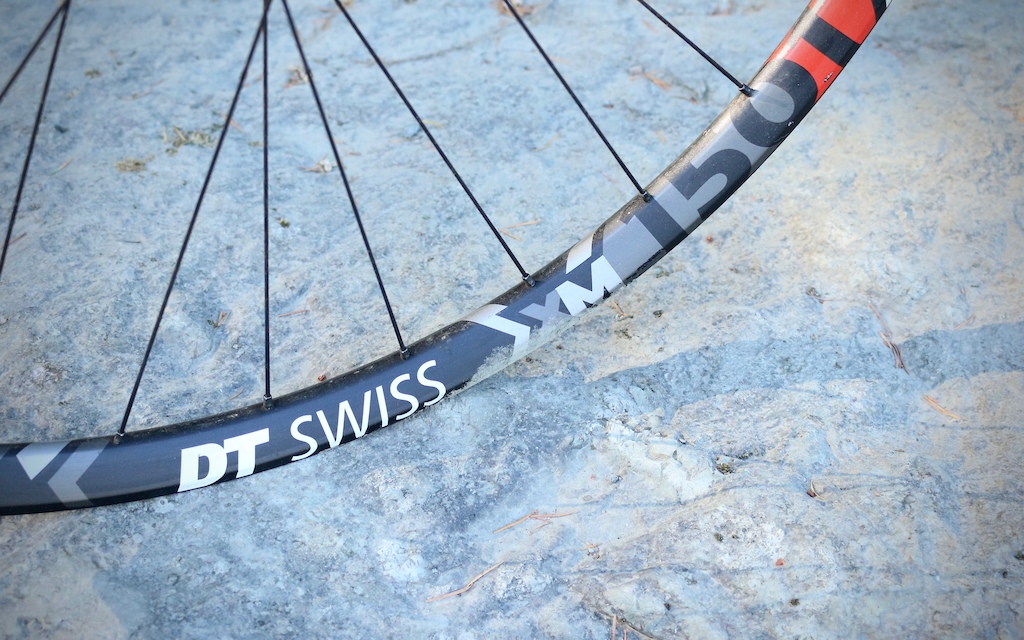
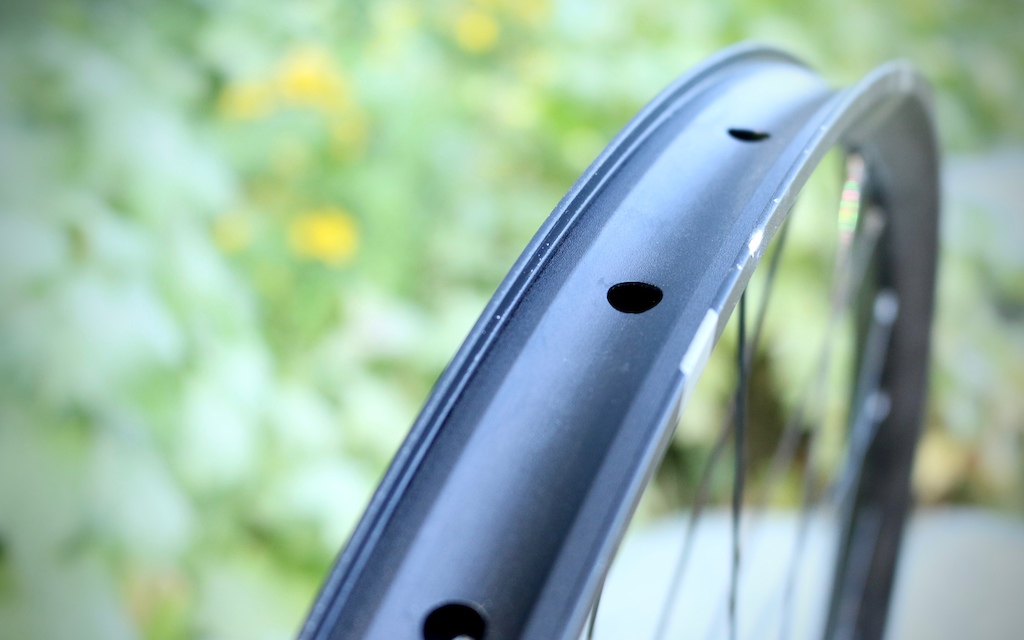
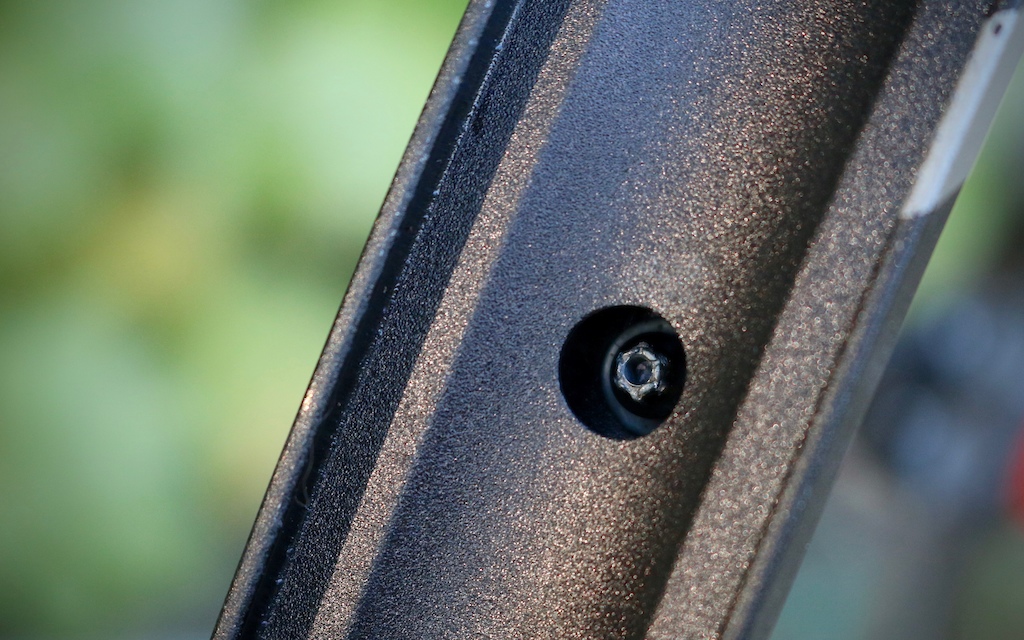
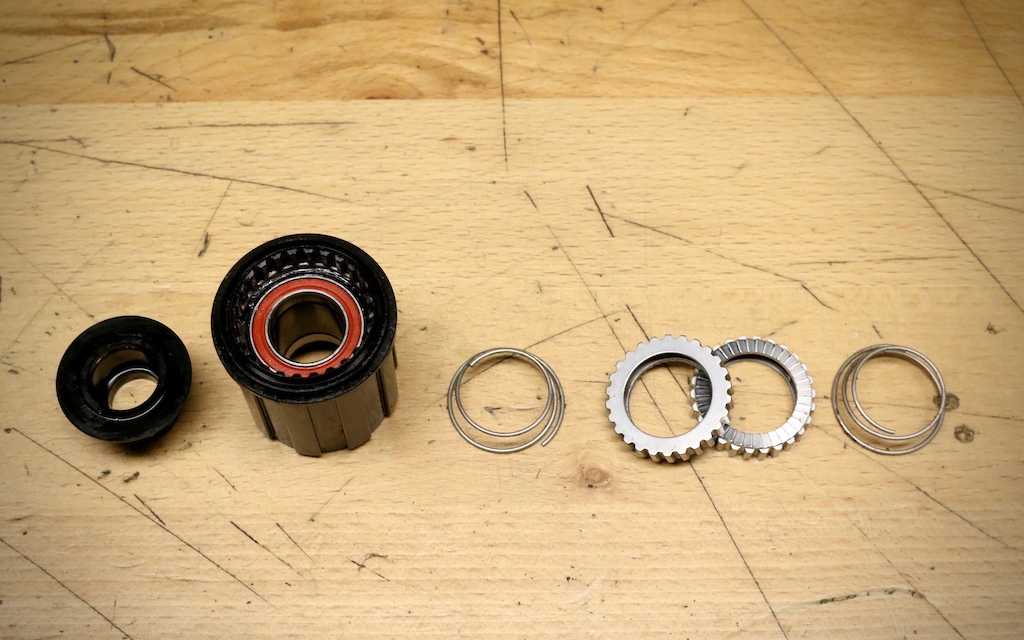
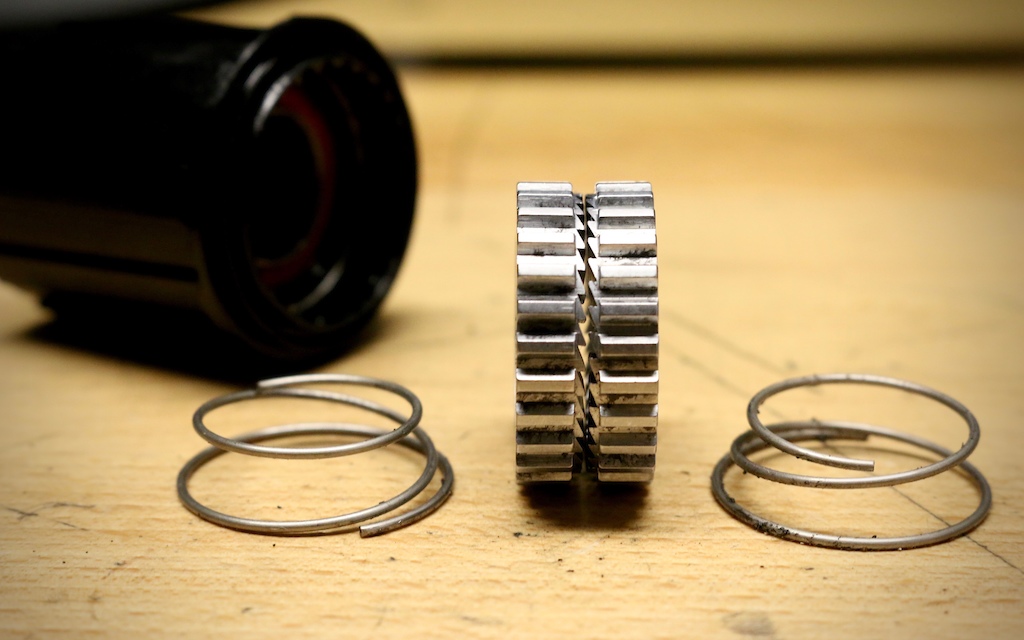
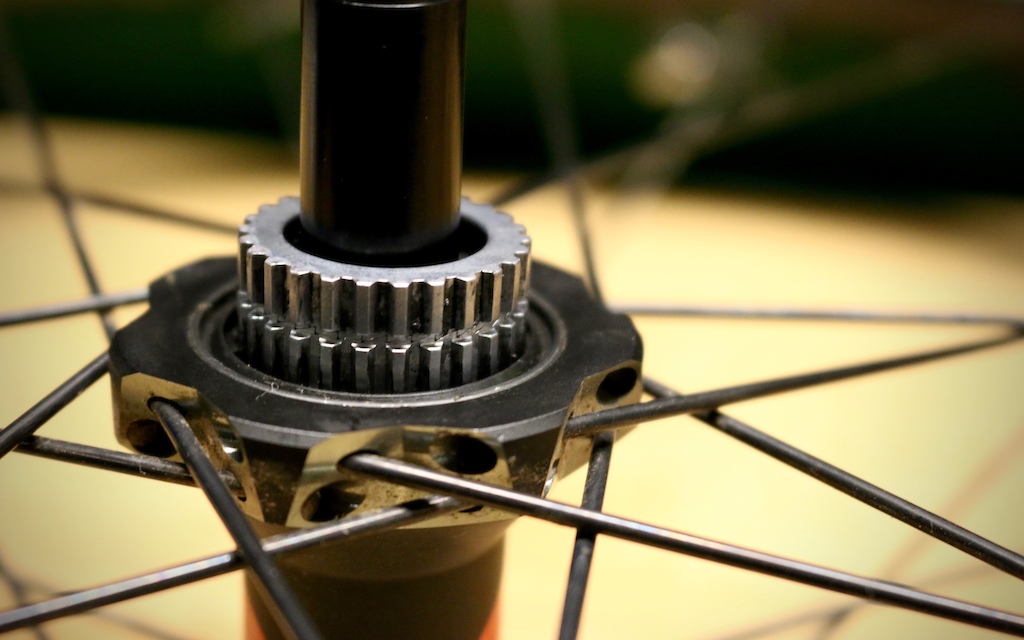
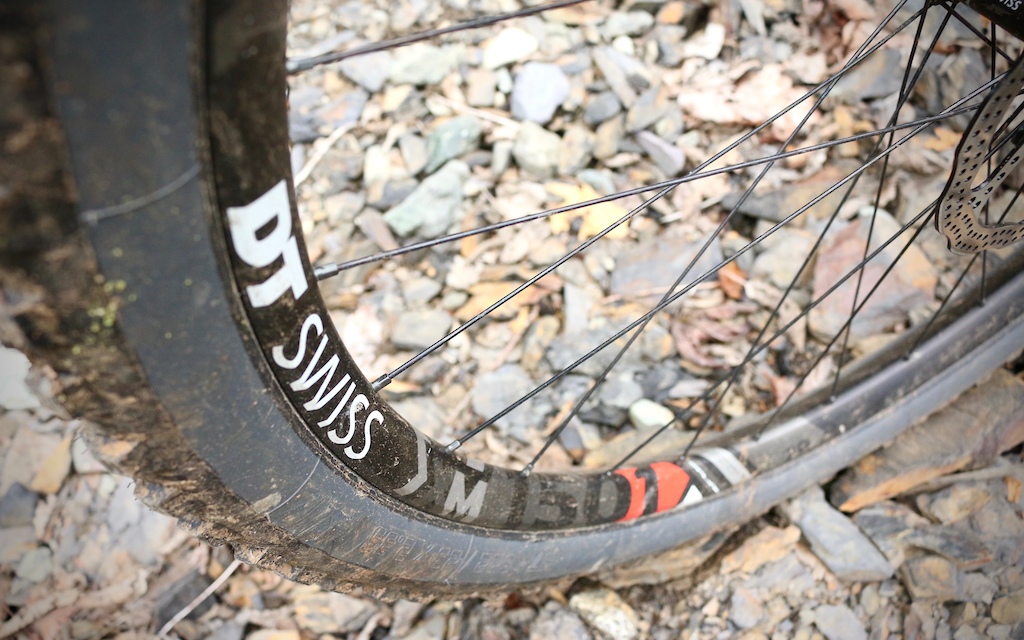
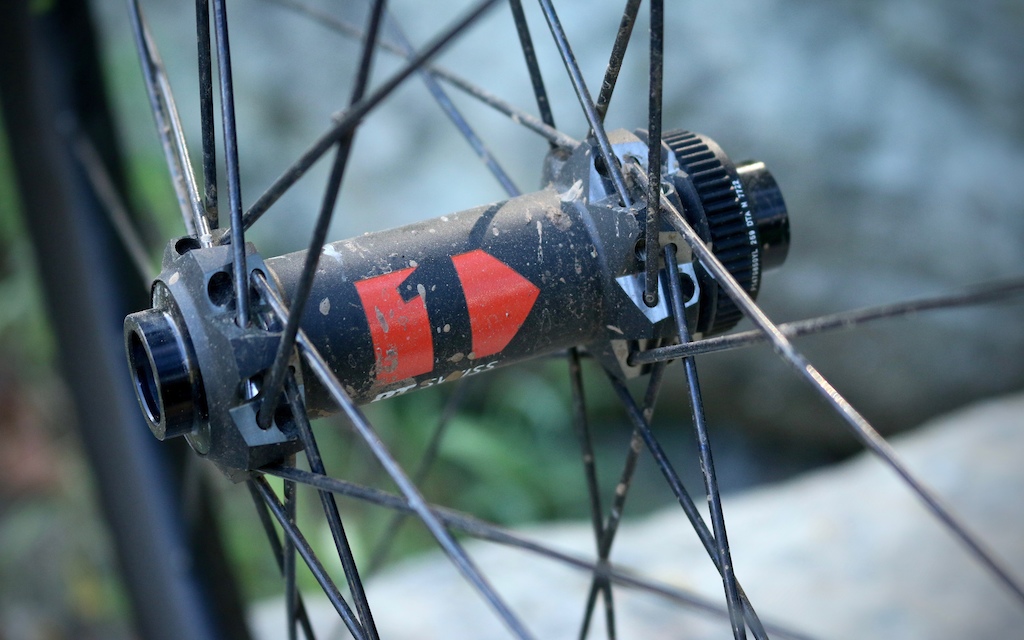
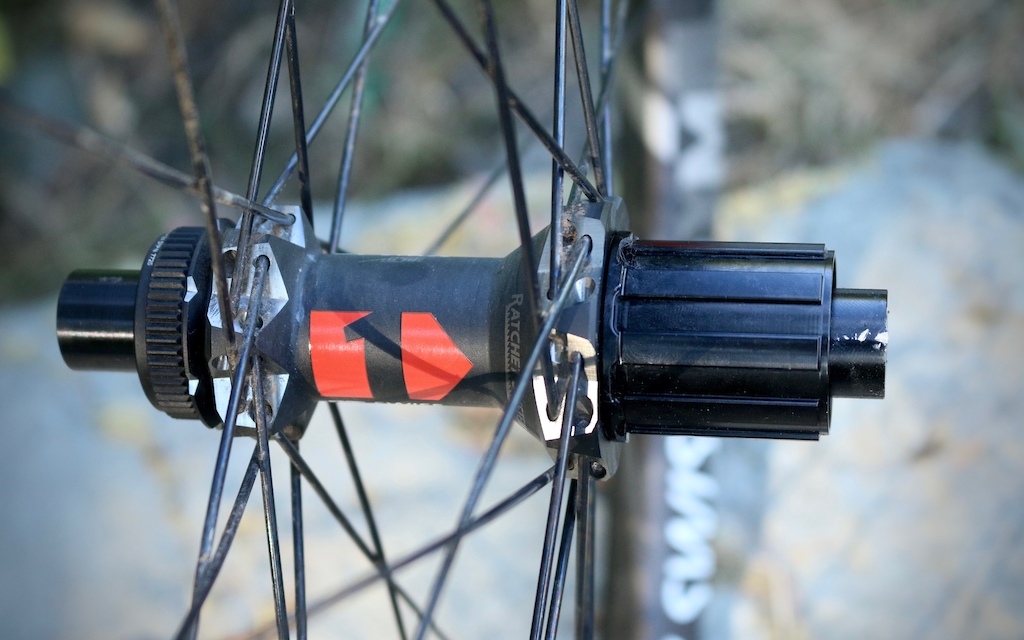

 Member since Oct 18, 2005
Member since Oct 18, 2005
Just unbelievable.
Center locks are faster to install and uninstall. They secure the rotors perfectly and I've never had any issues whatsoever not to mention it's lighter than having 6 (x2) bolts.
Seriously, center locks are better.
Centerlock is a vastly superior interface that should have been adopted across the MTB industry years ago.
I also used a park tool b.b. tool (the one that looks like long skinny cone wrench) because is very thin and offers the best leverage
"Center locks are faster to install and uninstall. They secure the rotors perfectly and I've never had any issues whatsoever not to mention it's lighter than having 6 (x2) bolts."
1. OK, they're faster to install and uninstall. And how many times do you do that in a ride? In a year? Exactly.
2. Lighter, quite possibly, but it might be close. Nonetheless, the average rider doesn't care about a bike that is 5 grams heavier because we don't race WC's.
Here let me just end this right now.
There are people out there who enjoy buying bike frames and building them up. There are people out there who enjoy buying multiple wheel sets and like building them.
Then there are those who work on bikes. They are called bike mechanics. Maybe you've heard of them or maybe even met a bike mechanic before? Please ask which one they would prefer to install.
Anything that makes like easier and works is a win in my book.
Err, but not sadly in the rock'n'roll sense. They actually rock, no matter how much you (over) tighten them
There are some people who really like Centrelock. They feel the system is lighter and easier to work on. For them, this is a reality. For them, it's the best choice.
Then, there are those who prefer 6-bolt systems. They feel more comfortable with the redundancy of having multiple anchor points, they trust the system, they don't mind the extra weight, or don't agree centrelock is lighter. For them, this is also a reality. For them, its the best choice.
Anything that makes the person whose bike it is happier is a win for that person.
Out of curiosity I compared SLX 180mm discs recently : CL166g, 6b 138g+12g bolts.
Is the CL hub at least 16g lighter?
I don't have a preference btw, just annoyed that I can't just swap discs freely between wheels (yeah , adapters, I know).
I forgot, with the 166g discs (180mm SLX centerlock), there's also the 18g lockring.
That's 184g.
6 bolt disc with bolts : 138+12 so 150g.
Is the CL hub more than 34g lighter ? I doubt it. Maybe my example is not representative...
Anyway, I'll go for adapters (25g I think) which will still be lighter and I can use all my discs how I want.
On one bike I have Shimano XT. 10 degree engagement and proper centerlock (no slop) and INEXPENSIVE. On another Onyx= unfettered performance and beauty.
DT swiss is on the roadie since i don't want to maintain it very often, but I still like the precise feel of its engagement mechanism.
& unlike Mike Levy, I've seen more than just the 52 tooth star ratchets fail: I've been there for 36t failures as well.
I heard the knockoff rings were an issue but I haven't heard anything about the DT rings yet. Seen a few failures but seemed pretty rare compared to how many pawl, bearing, seal failures I've seen on other hubs (King notwithstanding, they seem to hold up great).
Oil belongs in a sealed casing, like it is on your car. if your mechanism requires an oil bath, but cant be sealed to provide it, your design is fundamentally flawed.
I still have an old 240S that must be 8 years old now, it's been on countless bikes, re-rimmed endlessly & it's had one set of bearings in its life.
I would always go for a DT hub out of choice. Light & reliable - easily adaptable. They just work.
So, I call this: False advertisement.
This shit is getting ridiculous.
heck, even if you paid a wheel builder instead of doing it yourself, it would still come out way cheaper than buying this spline wheelset. why do people pay those prices?
Therefore, the cool graphics are worth €500.
Have any of you guys tried the xr361 yet? I am tempted by a pair for long trail days. At 80kg, should I be looking at the xm421 instead?
DT Swiss XM 401 same rim as here
DT Swiss nipple and spoke
Novatec hubs 29 point engagement
weight 1640 g
Price 220 eur
Yes it can be done CHEAP and after 1 year all mountain riding and some BP everything works great
i only wish they were asymmetrical. dt swiss is starting to do that on their road rims, they need to get on it for mtb, where i would argue it's even more important
The last time I saw CL discs where vibrating like... well a vibrator, had to change the wheel because the splines on the hub were f***ed
Why straight pull vs the traditional J bend spokes?
I know they are more expensive. Is there any advantage other than weird looking hubs?
I would appreciate opinions on experience...
Besides, when was the last time you saw a spoke broken at the bend? weakening a part only matters if you've weakened it below the strength it needs to hold the load placed on it, & that doesn't seem to be true of J-bend spokes.
About 6 times a year ...
All of my broken spokes have broken at the bend. Road and mountain.
Lesson (or TL
and as long as you put pressure in the middle of the spoke while tightening, they don't really spin on you
all that said, i still wouldn't go out of my way to buy a straight pull hub, just based on spoke availability and cost alone. but if you own one already, it's really not so bad
what's your weight?
at 85 kg ("fully armed"), been thinking about going for the narrower (25mm) ex1501 on the rear, and the xm1501 up front (for durability or should i say dent prevention)
What's your take?
Some riders out there have some insane pulling and the torque is just to much for the 54's
P.S.: Pink Bike, at least you should have put a pic of said adapters just to have a glimpse at them, for people considering this wheels and not liking CL rotors.
Lighter hub body
Less material to machine
Ease of rotor installation
I've never had a problem with my centerlock rotors, but maybe because they're all Shimano components.
Do people actually think using 6 bolts with small heads that are easy to round / damage is a better option?